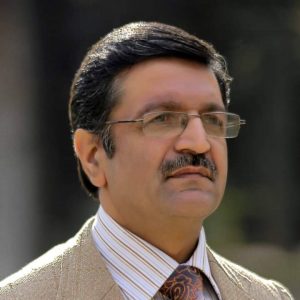It is inconceivable for the Taliban to change their extreme views

One of the major concerns of Afghan citizens, especially women, about the possibility of the Taliban gaining power in the aftermath of the peace talks is their lack of respect to women’s rights. Some analysts believe that the Taliban’s strict view is their identity.
“It is incomprehensible that the Taliban are ready to change their radical and extreme views,” said Ahmad Zia Rafat, in an interview with the CSHRN, ” if they give up extremism, they will become a movement without identity.”
Mr Rafat added that the Taliban could not relinquish the beliefs they had been propagating for years to gain so many followers, and would therefore insist on believing them. Taliban’s view of women is essential to their identity.
CSHRN: Given what you have said about the immutability of Taliban’s view of women, do you think women will experience the era of Taliban?
Rafat: If the Taliban are given the opportunity and the share of power, they will undoubtedly disrupt the progress of democracy in Afghanistan; that is, even if there is no government like the Taliban era and they cannot stop the progress of democracy, they will at least delay it, which will be a serious damage to Afghanistan.
CSHRN: What is the government’s red line on women and what issues regarding women should be discussed in the negotiations?
Rafat: Any rights enshrined by the constitution and guaranteed by other laws, is the government’s red line and must be accepted. When it comes to women’s rights, it does not only mean right to education, but also that women can do whatever men do in the societyincluding being able to work in various fields such asarts.
According to Mr. Rafat, accepting any restrictions on women’s rights in peace talks will further increase the Taliban’s restrictions and demands.
CSHRN: How does the presence of women in the dialogue help facilitate and accelerate the peace process?
Rafat: The presence of women makes the international community realize that women have undeniable concerns, which men may not be able to address them as well and clearly as women.
According to Mr. Rafat, the women of the team should not expect other members of the team to bargain with the Taliban over their basic rights, and it would be better for them to be present in the talks themselves and know about the details of ongoing negotiations.7
CSHRN: What should other women, including civil society activists, do to strengthen the Afghan negotiation team members?
Rafat: There are many ways; one way is continuous civic activities. Even women abroad can protest to make the international community aware of themselves, and to put pressure on countries that want to protect women’s rights. They can even hold rallies in front of the White House to demonstrate that they do not want to talk to the Taliban under the pretext of peace that willjeopardize their achievements.
One of the important issues regarding peace talks, according to Mr. Rafat, is the ability of the negotiating team to fulfill their responsibility. According to him, it is in the interest of the government to include figures with the necessary knowledge and ability in the composition of the negotiation team. Mr. Rafat believes that women in the negotiating team do not necessarily have to have religious knowledge to talk with the Taliban, but can engage in the dialogue through civic reasoning.